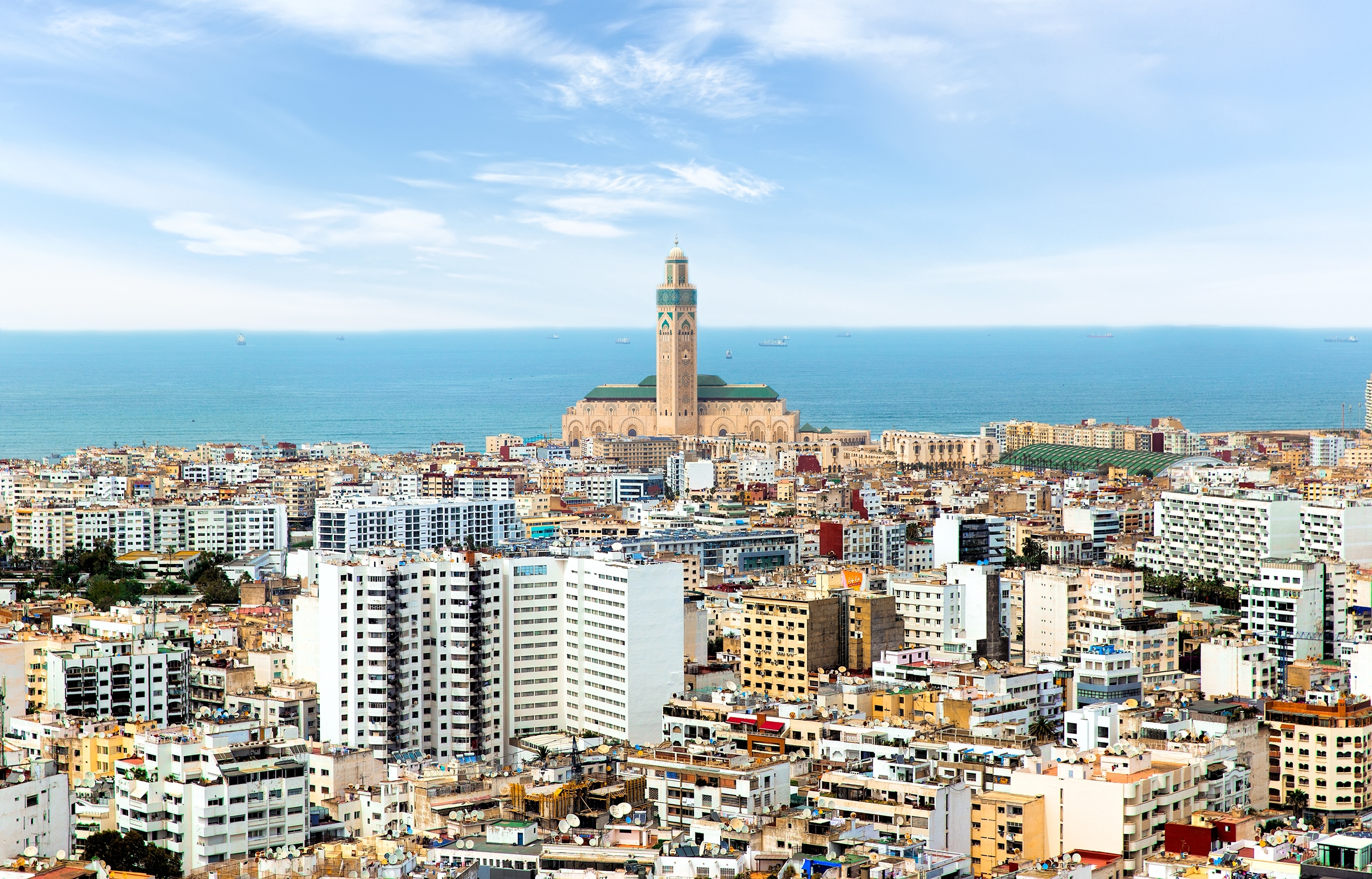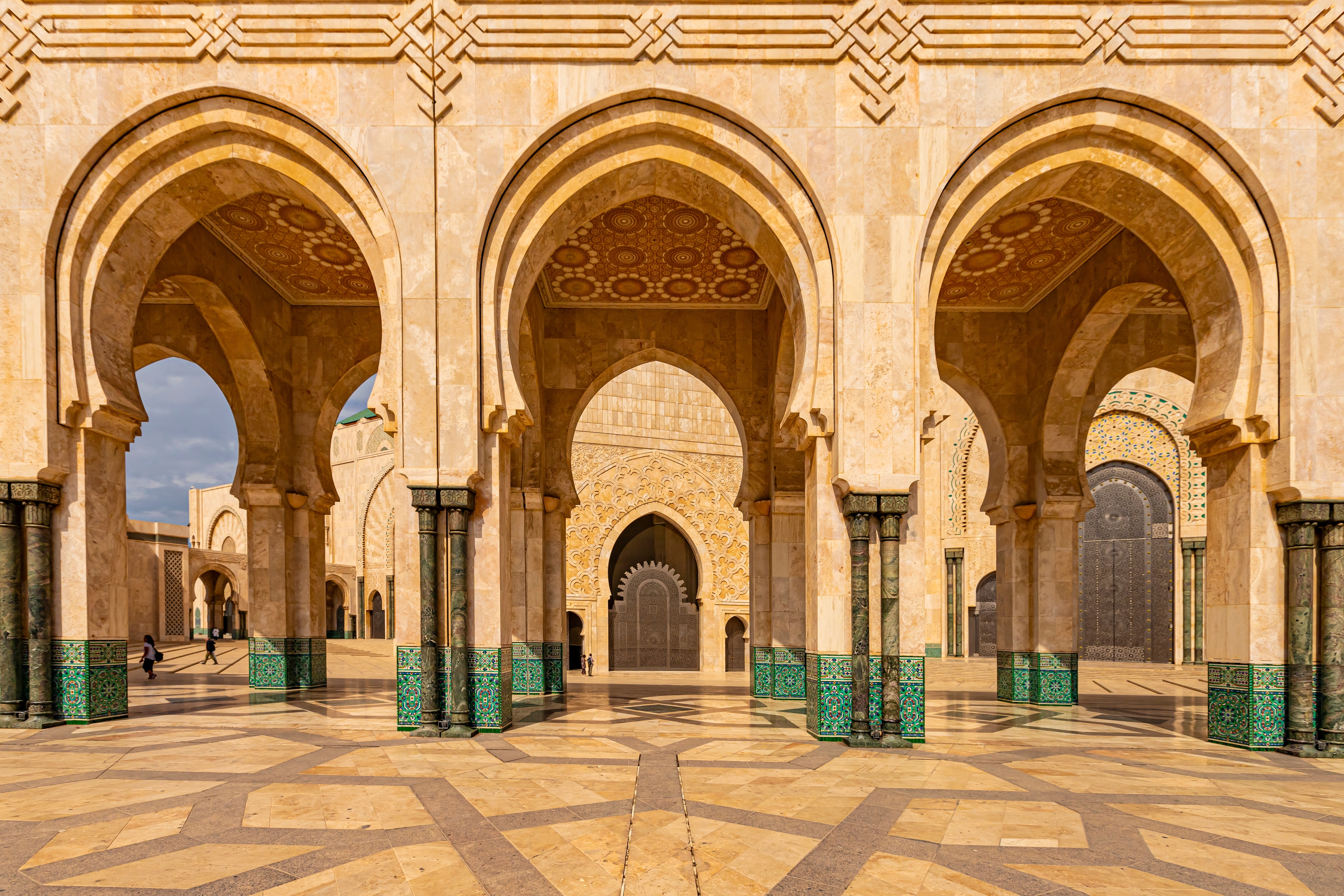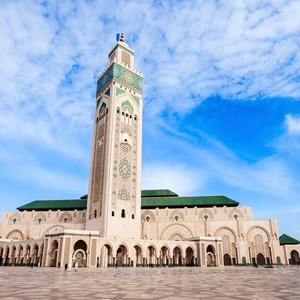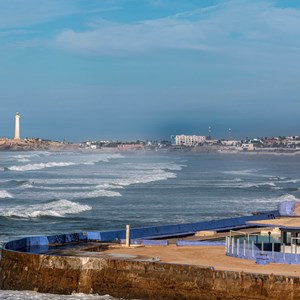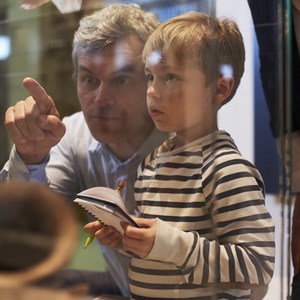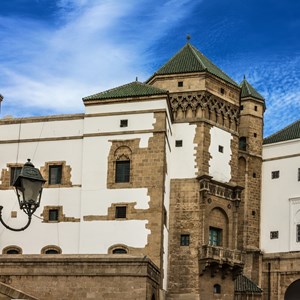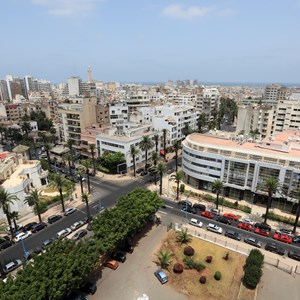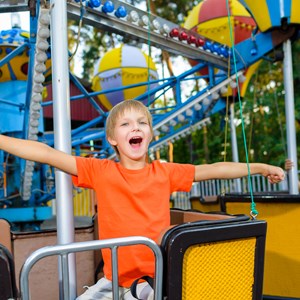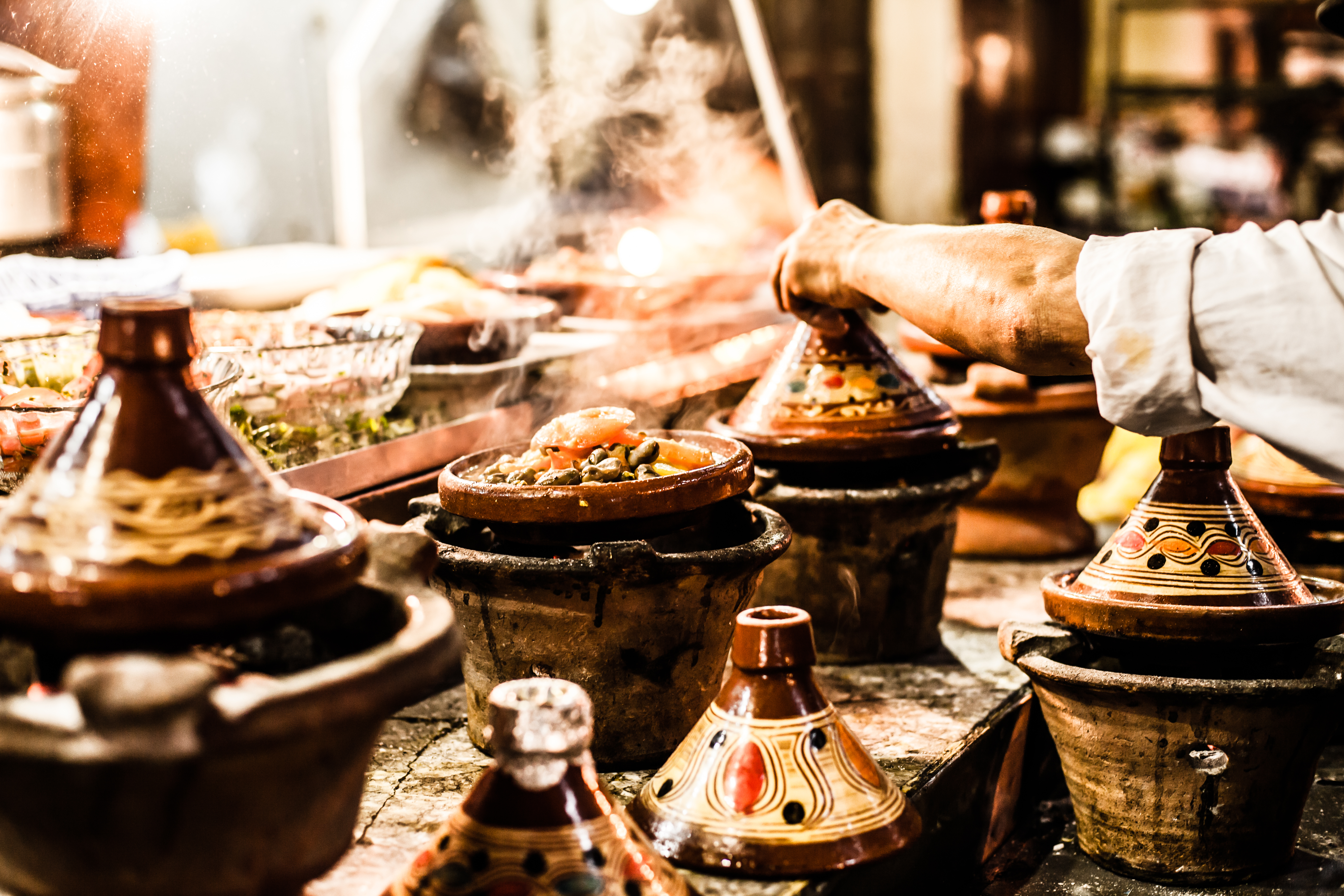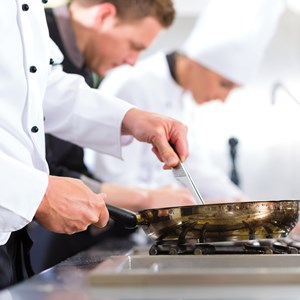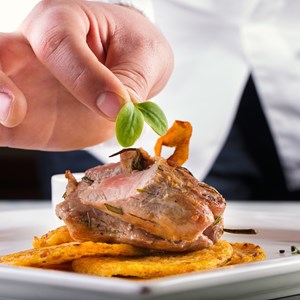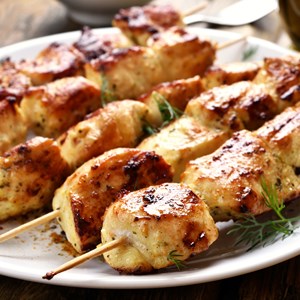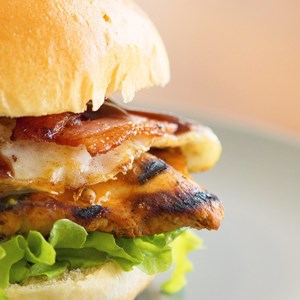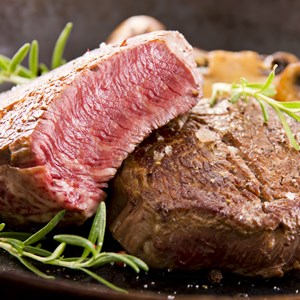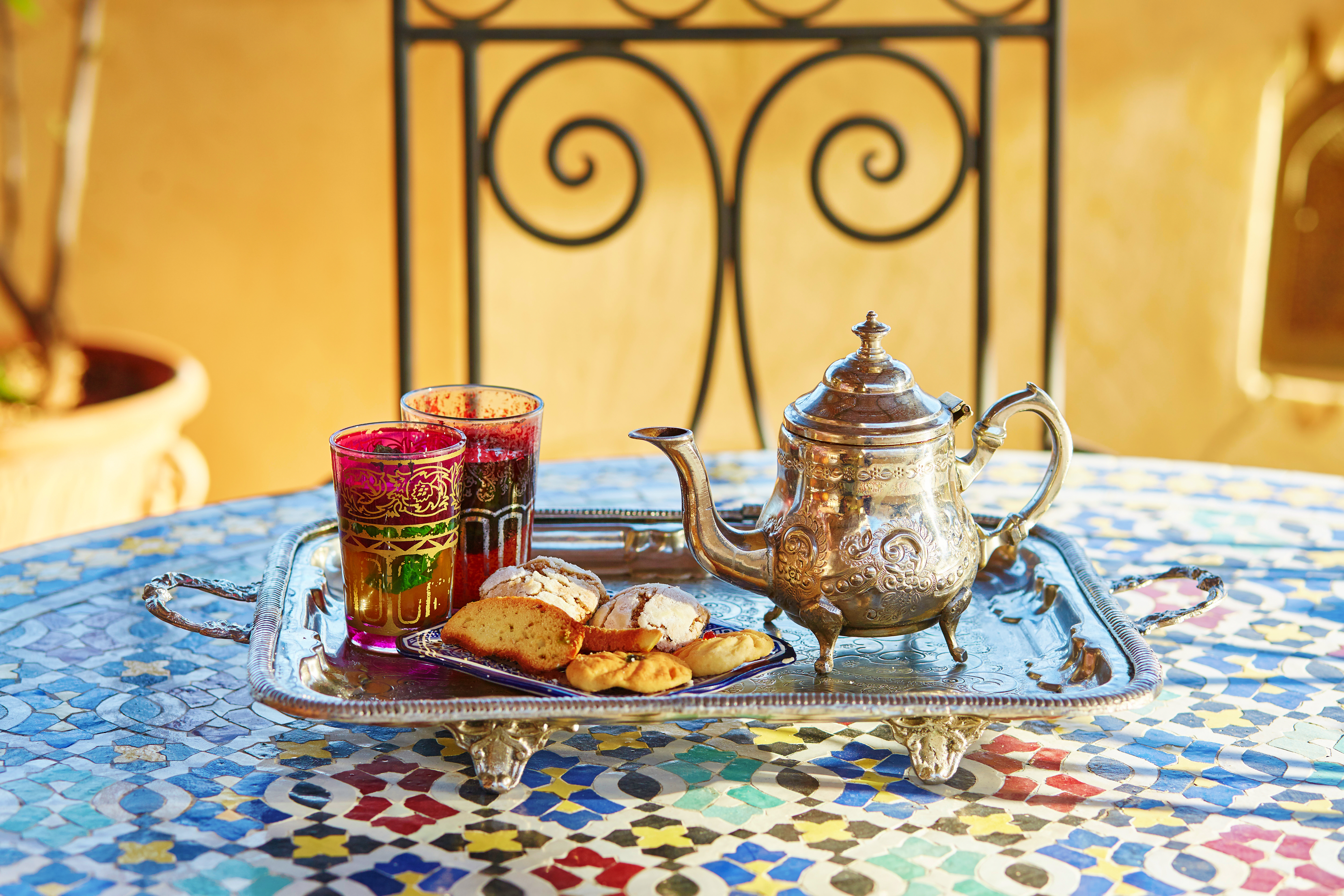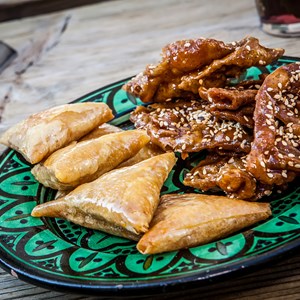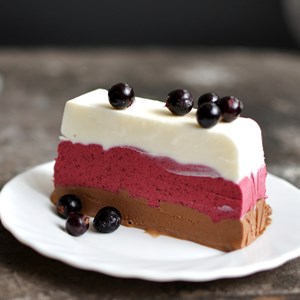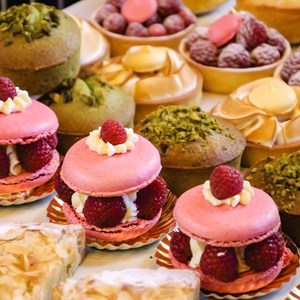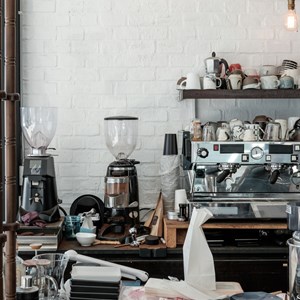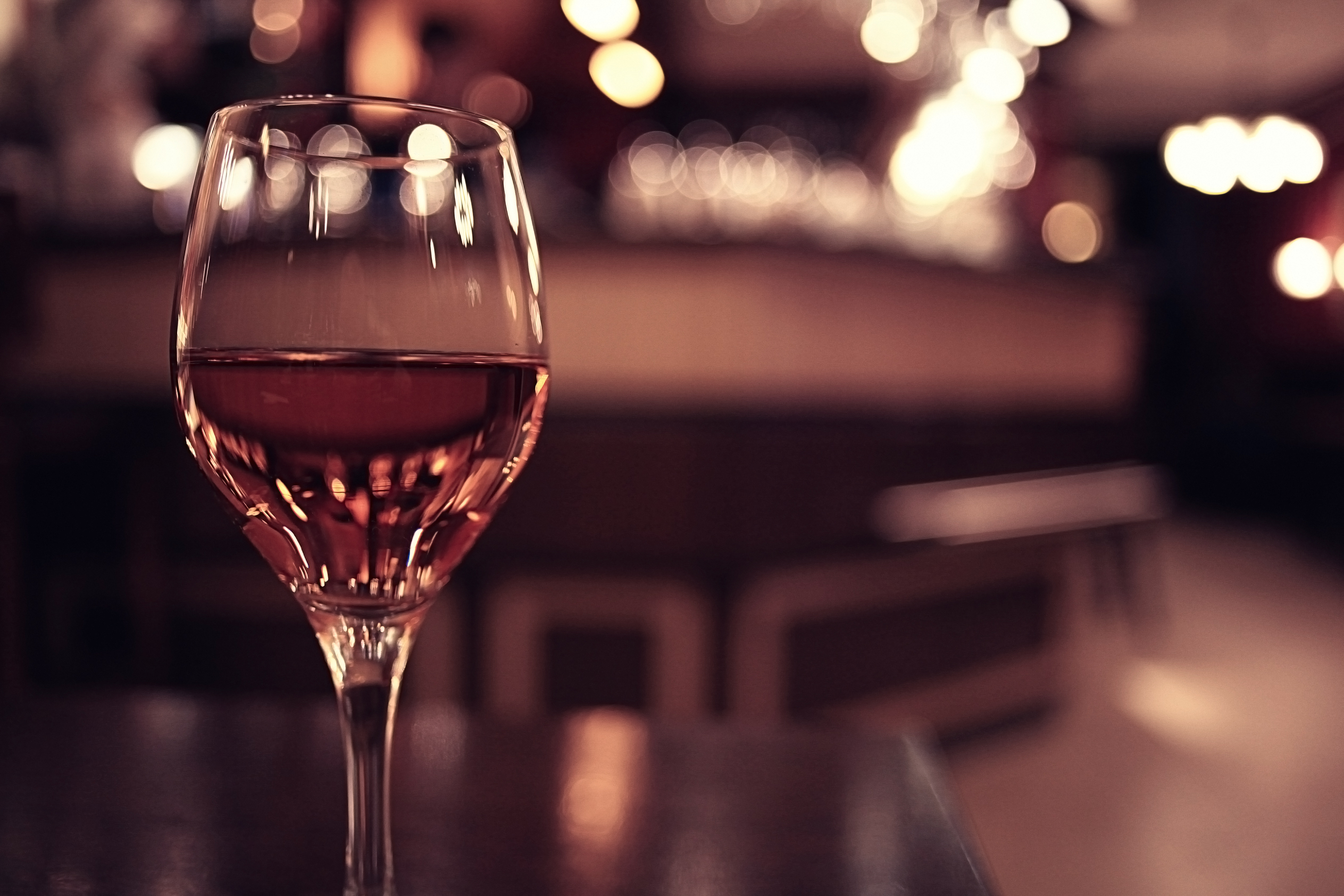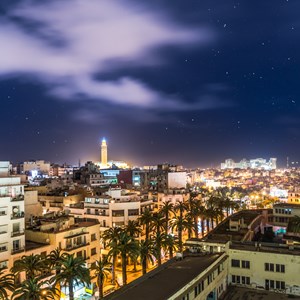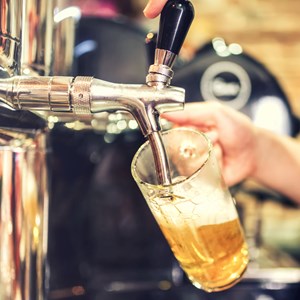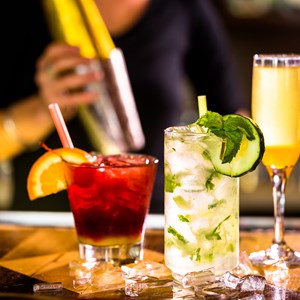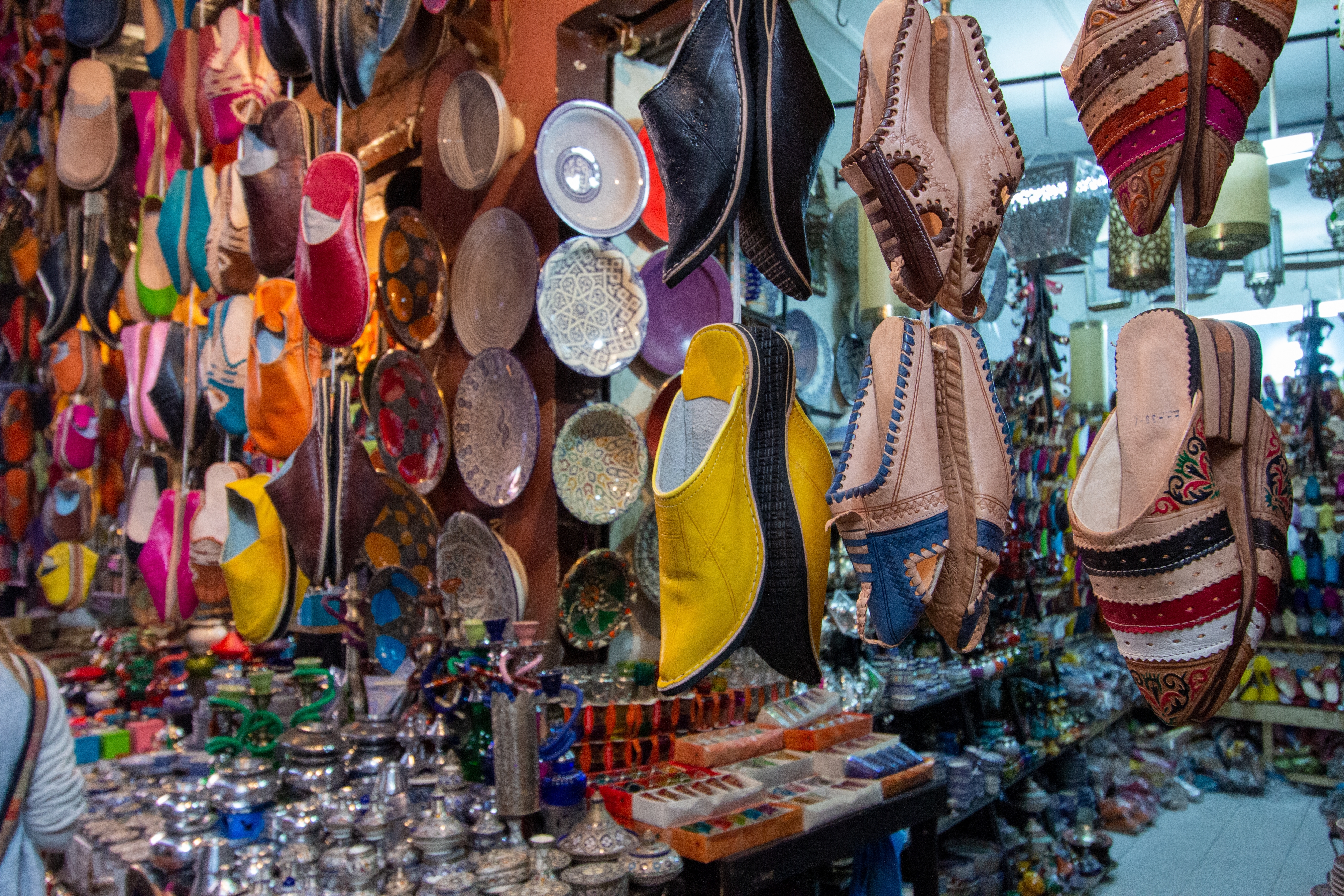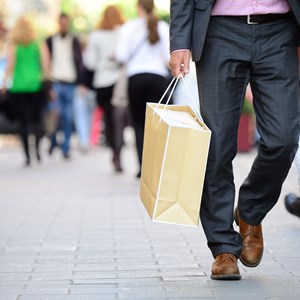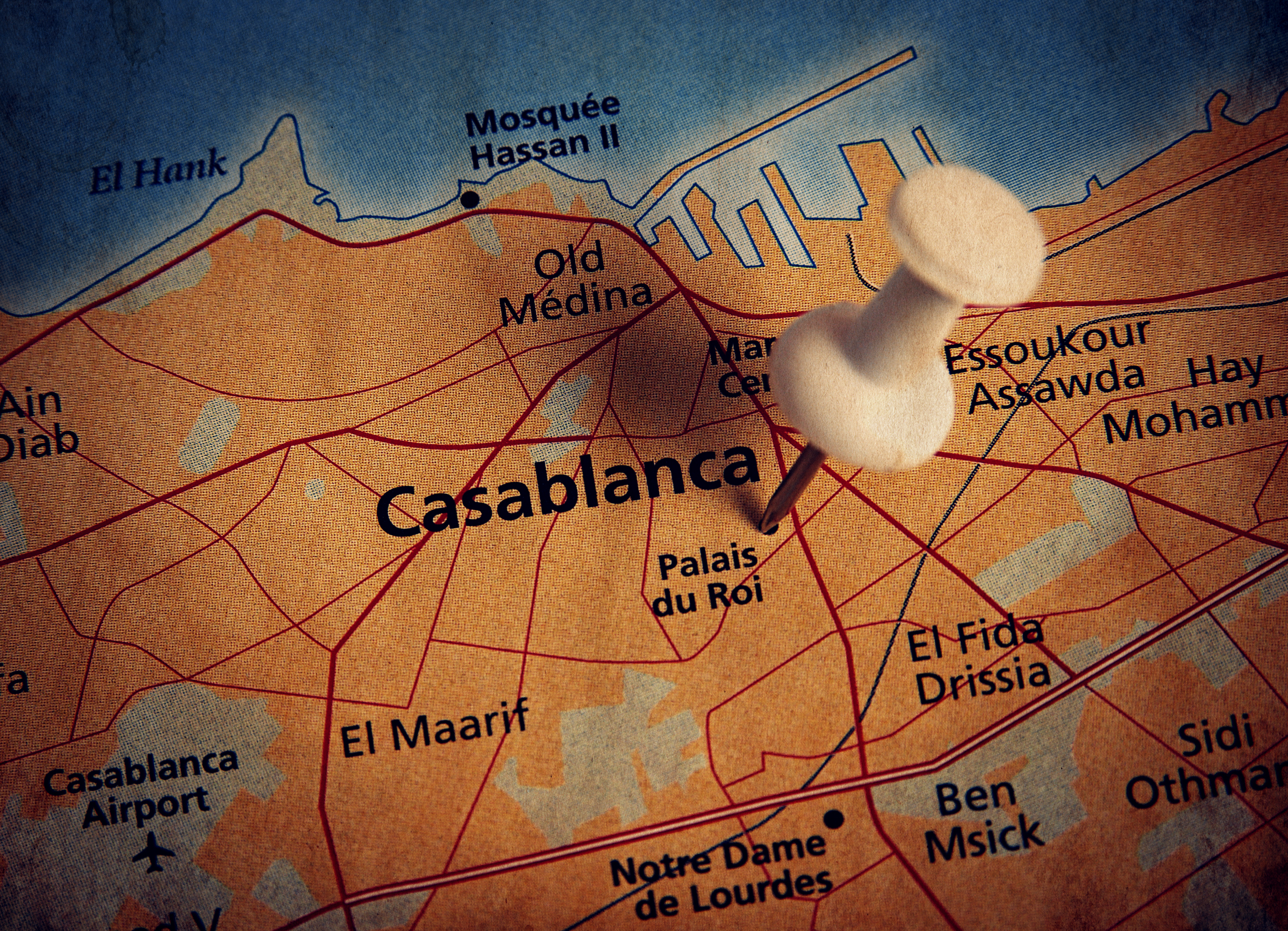

Casablanca, Morocco's largest city, hums with energy, where modern towers brush the Atlantic sky while winding streets carry the weight of old Morocco. Mosques and art deco façades share the skyline, and the port keeps the city moving. Trams rattle past markets, taxis thread through sun-drenched avenues, and life unfolds at its own brisk pace, a blend of tradition and modernity that feels entirely its own.
The City
Infused with a sense of romantic allure by the iconic 1942 film starring Humphrey Bogart and Ingrid Bergman, Casablanca might not be Morocco's political capital (that title goes to Rabat), but it unquestionably reigns as the nation's economic and cultural heartbeat.
While Rabat holds the formal title, Casablanca excels in areas that matter on a day-to-day basis: commerce, industry, and shipping. This bustling activity lends the city a distinctly contemporary aura. Nowhere is this more evident than along Boulevard Brahim Roudani, where sleek business centres give way to upscale restaurants and diverse cultural spaces. These modern enclaves provide a sharp contrast to the Old Town's narrow lanes and the vibrant souks, set against a backdrop of aging, colonial-era buildings.
Known locally as Casa or Dar El Beïda in Arabic, Casablanca boasts a rich and complex history. Its story took a dramatic turn during the 15th-century Portuguese occupation, aimed at suppressing piracy through the strategic use of the port. However, the devastating earthquake of 1755 lessened Portuguese interest, paving the way for a rebirth under the Moroccan leader Sidi Mohammed III. This layered history adds yet another dimension to a city that constantly straddles the old and the new.
Do & See
Casablanca is a city that makes the most sense on foot, whether you’re crossing the sprawling esplanade around the Hassan II Mosque or losing yourself in the lanes of the Old Medina.
The Ville Nouvelle, with its Art Deco buildings and wide streets, sits in clear contrast to the older neighbourhoods, and the shift between the two gives a good feel for how the city has grown.
Food stalls, corner cafés, and small markets appear in almost every direction, so it’s easy to pause for a tagine, explore a side street, or browse for carpets and ceramics without planning much.
Casablanca brings together older traditions and newer city life in a way that feels grounded rather than staged, and wandering around is often the simplest way to understand it.
Dining
Casablanca is a multicultural city, and while many restaurants focus on Moroccan or French cuisine, you can also find Oriental, Mexican, Italian, Indian, and American-style eateries. Be sure to try classic Moroccan dishes such as tajine (slow-cooked stews with meat, vegetables, or fish) and couscous, often served with vegetables, meat, or lamb.
Other must-try dishes include Mechoui, a paprika- and cumin-seasoned roasted lamb, and Bisteeya, a chicken-and-egg pastry in a lemony onion sauce, topped with crushed almonds, cinnamon, and sugar.
Note that menus and opening hours may be restricted during Ramadan.
Cafés
Casablanca has a strong café culture, from traditional patisseries serving Moroccan sweets to ice cream parlours locals have loved for decades. Afternoons often revolve around a cup of mint tea, coffee, or a small snack: nuts, dried-fruit pastries, sweet breads, or anything touched with honey or cinnamon, making cafés an easy way to experience everyday Moroccan life.
Bars & Nightlife
Casablanca offers a vibrant bar scene, but it's important to note that it can be challenging for single women to go bar hopping unaccompanied. Most nightclubs have policies that may restrict their entry unless they're with a partner. However, some establishments welcome couples looking for a night out. Hotel bars, in particular, provide a more relaxed and secure environment, making them a popular choice for visitors wanting a worry-free evening.
Shopping
If you're captivated by traditional home decor and souvenirs, Morocco will feel like a paradise. Kilims and Shoedwi, carpets adorned with colourful geometric patterns, often in black and white, are a top pick. These are typically handmade and sold in quaint shops situated in the alleyways around Boulevard Félix Houphouët-Boigny or in the medinas.
Alongside carpets, ceramics, and pottery items like tagines, as well as woven textiles, enjoy equal popularity. You'll often find them in bazaars alongside dried fruits and spices.
Remember, haggling is not just accepted but expected when shopping here. The golden rule is to be patient and take your time.
Tourist Information
Casablanca Mohammed V International Airport (CMN)
Casablanca’s Mohammed V International Airport is located about 30 km south of the city centre, with the journey into Casablanca taking roughly 40–45 minutes, depending on traffic. Travellers can reach the city by ONCF trains, which run from the station in the basement of Terminal 1 to Casa‑Voyageurs and Casa‑Port approximately every hour. Official taxis (white Grand taxis) are available outside the arrivals area 24/7.
Address: Casablanca Mohammed V International Airport
Email:
Phone: +212 22 539 040
Website: www.aeroportcasablanca.ma/en
More Information:
Passport/Visa
Citizens of the European Union, as well as the United States, Australia, and dozens of world countries can visit Morocco visa-free for up to 90 days. Look up individual prerequisites prior to travel in order to possibly apply for a visa in time.
Address:
Email:
Phone:
Website:
More Information:
Best Time to Visit
The best time to visit Casablanca is from May to October, when the city enjoys its driest months. During this period, even hot days are tempered by a refreshing sea breeze, making the climate more comfortable. However, Casablanca is blessed with a warm climate year-round, so a winter visit isn't entirely off the table. While there's a chance of encountering some rain, the milder temperatures can still make for a pleasant trip.
Address:
Email:
Phone:
Website:
More Information:
Dress Code
Morocco offers a rich tapestry of modern development and deep-rooted tradition, particularly noticeable as you move from urban to rural settings. For tourists, understanding and respecting this cultural backdrop is crucial. Opting for modest attire, long sleeves, and full-length bottoms is advisable for both men and women. Not only does this show cultural respect, but it's also practical: loose, airy clothing like long skirts, maxi dresses, or flowing trousers helps keep you cool and offers sun protection.
Address:
Email:
Phone:
Website:
More Information:
Buses & Trains
For intercity travel within Morocco, CTM buses are a reliable and extensive option. They operate from Gare Routière, in the heart of Casablanca, and are generally comfortable for longer trips. Alternatively, if you prefer rail travel, the Gare du Port serves as the main hub for trains, with connections to cities like Rabat, Fes, and Marrakech.
For information on timetables and routes, visit CTM's offficial website.
Address:
Email:
Phone:
Website: https://ctm.ma
More Information: www.moroccotrains.com
Trams
The Casablanca tramway is a simple and reliable way to get around the city. Currently, it has four lines, and it's often faster than a taxi during rush hour and a convenient way to reach spots like Ain Diab, Casa‑Port, or Parc de la Ligue Arabe without navigating traffic.
Trams run roughly every 10–11 minutes and operate from early morning until late evening. Most stations have ticket machines for single rides or rechargeable cards, so you don’t need to carry cash.
For information on fares, routes, and timetables, visit Casatramway's official website.
Address:
Email:
Phone:
Website: www.casatramway.ma
More Information:
Taxi
Taxis are widely available throughout Casablanca. Petit taxis (small, red cars) are ideal for short trips within the city, while Grand taxis (white vehicles) are typically used for longer journeys or shared routes. Petit taxis usually run on a meter, though it’s worth asking the driver to turn it on, especially at night.
Uber is not currently available in Morocco, but Careem operates in Casablanca and works much like the familiar ride‑hailing app. Another option is inDrive, which lets passengers propose a fare directly to the driver.
Address:
Email:
Phone:
Website:
More Information:
Post
Casablanca's main post office (La Poste Centrale) is located near Place Mohammed V in a beautiful neo‑Moorish building at the junction of Boulevard de Paris and Boulevard Hassan II. It is the main office for travellers and offers a full range of services, from sending letters and parcels, purchasing stamps, postcards, envelopes, and stationery, and using financial services such as money orders. It is generally open Monday to Friday from 8am to 4pm, and on Saturday from 8:30am to noon.
Address: La Poste Centrale, 16, Avenue Hassan II, Casablanca
Email:
Phone: +212 5222 23635
Website: www.poste.ma
More Information:
Pharmacy
Pharmacies in Casablanca are easy to spot thanks to their green crosses, often illuminated and marked with the word 'Pharmacie'. Most are open 9 am to 7 pm, Monday to Saturday, but some operate 24-hour rotations as pharmacie de garde for emergencies.
Address:
Email:
Phone:
Website:
More Information:
Telephone
Country code: +212
Area code: 052
Address:
Email:
Phone:
Website:
More Information:
Electricity
In Morocco, you will encounter two types of electrical outlets: Type C and Type E, both with round prongs. The country's electrical system runs on a 220V supply voltage and a frequency of 50Hz. Make sure to bring appropriate adaptors if your devices are not compatible with these specifications.
Address:
Email:
Phone:
Website:
More Information:


